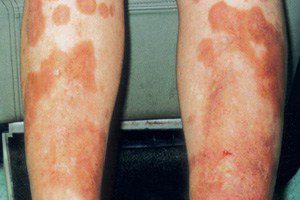
A lawsuit filed against Johnson & Johnson and its subsidiary, Janssen, alleges that the Janssen diabetes medication, Invokana, causes patients to develop diabetic ketoacidosis. The lawsuit was filed in the Court of Common Pleas, Philadelphia County, and includes allegations that the manufacturers of Invokana (canagliflozin) knew that the drug could cause diabetic ketoacidosis but failed […]
 A lawsuit filed against Johnson & Johnson and its subsidiary, Janssen, alleges that the Janssen diabetes medication, Invokana, causes patients to develop diabetic ketoacidosis.
A lawsuit filed against Johnson & Johnson and its subsidiary, Janssen, alleges that the Janssen diabetes medication, Invokana, causes patients to develop diabetic ketoacidosis.
The lawsuit was filed in the Court of Common Pleas, Philadelphia County, and includes allegations that the manufacturers of Invokana (canagliflozin) knew that the drug could cause diabetic ketoacidosis but failed to warn doctors. The FDA Adverse Event Reporting System (FAERS) database identified 20 cases of acidosis from March 2013 to June 6, 2014 that were reported as diabetic ketoacidosis (DKA), ketoacidosis, or ketosis in patients who were being treated with SGLT2 inhibitors.
In diabetic ketoacidosis, the body produces ketones, which build up as acid in the bloodstream. The condition often results in hospitalization and can lead to organ damage, coma, brain swelling, and death. The FDA advises patients to be aware of the signs of ketoacidosis, and to seek immediate medical attention if they experience any of these symptoms:
Invokana is approved to lower blood sugar in individuals with type 2 diabetics, but it also is prescribed to type 1 diabetics. Invokana is a member of a new class of drugs, known as SGLT2 inhibitors (sodium-glucose cotransporter-2 inhibitors). The class also includes dapagliflozin (Farxiga) and empagliflozin (Jardiance), and SGLT2 inhibitors in combination medications. SGLT2 inhibitors lower blood sugars by causing the kidneys to remove sugar from the body and cause the blood sugar to be excreted in the urine
SGLT2 inhibitors received FDA approval for use in combination with improved nutrition, a low carbohydrate diet, and exercise to help control blood sugars in adults diagnosed with type 2 diabetes (diabetes mellitus). Type 2 diabetes is typically associated with weight gain, an increased body mass index (BMI), glucose control issues, and an obese body type.
On December 4, 2015, the Food and Drug Administration (FDA) issued a Drug Safety Communication requiring manufacturers of SGLT2 inhibitors to warn about the risk of diabetic ketoacidosis. The FDA also warned about an increased incidence of life-threatening blood infections and kidney infections. In September 2015, the FDA strengthened the warning on Invokana (canagliflozin) and Invokamet (canagliflozin and metformin) to include information about the increased risk of bone fractures for individuals taking these drugs. The agency also added information about reduced bone mineral density. The FDA advises health care professionals to consider whether a patient is already at increased risk for bone fractures before prescribing Invokana or Invokamet.


